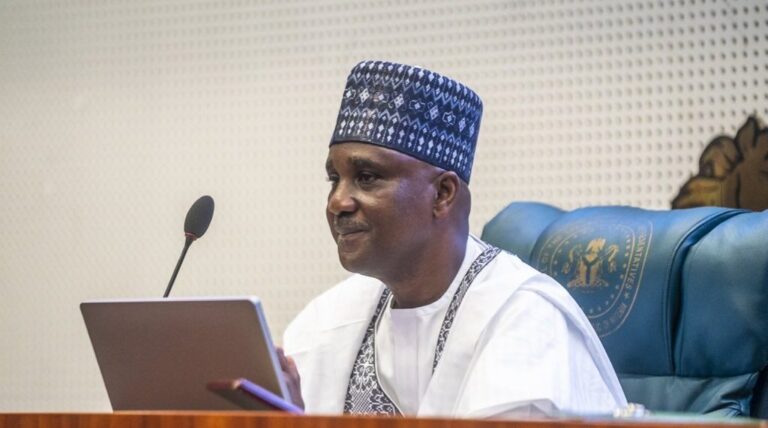By Peter Omopo
Abuja, September 8, 2025 — Speaker of the House of Representatives, Abbas Tajudeen, has warned that Nigeria’s public debt has surpassed statutory limits, threatening the country’s fiscal stability and long-term economic growth.
Speaking on Monday at the opening of the 11th Annual Conference and General Assembly of the West Africa Association of Public Accounts Committees (WAAPAC), held at the National Assembly, Abuja, Abbas said the nation’s borrowing trend had reached “a critical point” that required urgent reforms.
“As at the first quarter of 2025, Nigeria’s total public debt stood at ₦149.39 trillion (about US$97 billion), a sharp rise from ₦121.7 trillion recorded the previous year,” the Speaker said. “The debt-to-GDP ratio now stands at roughly 52 per cent, well above the statutory ceiling of 40 per cent set by our laws. This is not just a budgetary concern but a structural crisis that demands urgent parliamentary attention and coordinated reform.”
The conference, which attracted parliamentarians, financial experts, and development partners across West Africa, is focusing on “Strengthening Parliamentary Oversight of Public Debt: The Role of Finance and Public Accounts Committees.”
Abbas noted that Nigeria is now spending more on debt servicing than on health, education, and infrastructure, a trend that experts warn is unsustainable. He described the situation as “a signal of strain on fiscal sustainability,” urging for stronger oversight, transparent borrowing practices, and reforms to ensure loans translate into tangible economic and social benefits.
To address the crisis, Abbas announced Nigeria’s readiness to spearhead a West African Parliamentary Debt Oversight Framework under WAAPAC. The initiative, he said, would harmonise debt reporting across the sub-region, set transparency benchmarks, and provide lawmakers with tools to scrutinise borrowing practices.
He also unveiled plans for regional capacity-building programmes to strengthen the ability of finance and public accounts committees to conduct debt sustainability analyses and assess fiscal risks.
While acknowledging that borrowing remains a legitimate tool for development, Abbas stressed that loans must be tied to projects that create jobs and reduce poverty. “Reckless debt that fuels consumption or corruption must be exposed and rejected. Oversight is not just about figures but about the lives and futures behind those figures,” he said.
The Speaker reiterated the commitment of the 10th House of Representatives to transparency and accountability in public finance. He pledged that all major borrowing proposals would undergo public hearings under the House’s Open Parliament Policy, with simplified debt reports made available to citizens.
Abbas urged participants at the conference to treat deliberations with dedication, saying their resolutions would be vital in strengthening fiscal responsibility and accountability across the continent.

